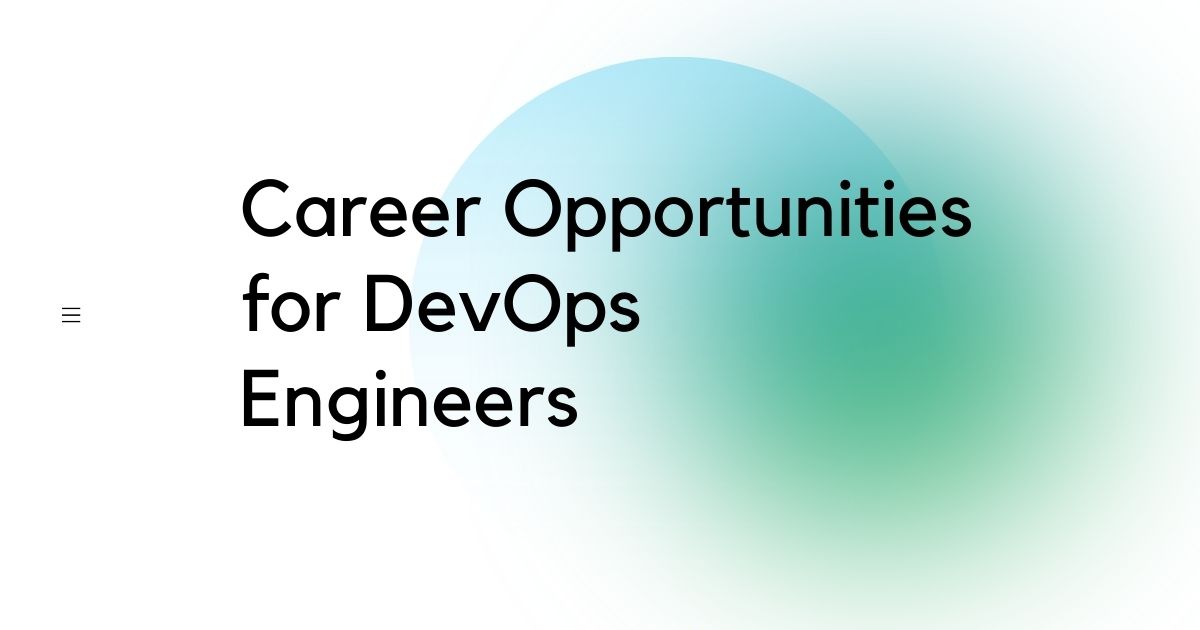
Top 9 Career Opportunities for DevOps Engineers in India
Feb 05, 2025 5 Min Read 3251 Views
(Last Updated)
The rapid adoption of DevOps across industries makes it one of the most in-demand roles for professionals today! Several career opportunities for DevOps engineers have emerged—each offering unique growth potential.
Being a DevOps Engineer continues to be popular. DevOps Engineers help automate workflows, manage CI/CD pipelines, and ensure a smooth collaboration between development and operations. This role lets you earn an average annual salary of ₹9 lakh, and top companies such as TCS, Infosys, and Cognizant are always on the lookout.
But that’s only the tip of the iceberg. The demand for Site Reliability Engineers (SRE) and Cloud Engineers is also rising. Google and Amazon depend on SREs to minimize system downtime and ensure performance. On the other hand, cloud engineers are responsible for deploying scalable cloud solutions, which are important for supporting business agility.
Going by the numbers, the global DevOps market is forecast to skyrocket from USD 13.29 billion in 2024 to USD 108.26 billion by 2035. That’s huge, growing at a CAGR of 21.01%. A staggering 83% of IT decision-makers have also adopted DevOps to unlock greater business value, and 99% of organizations report positive outcomes since implementing it.
So, know that your role as a DevOps engineer remains relevant. Let’s dive in and explore all the top career opportunities for DevOps engineers in India.
Table of contents
- Top Career Opportunities for DevOps Engineers in India
- 1) DevOps Engineer
- 2) Site Reliability Engineer (SRE)
- 3) Security Engineer (DevSecOps)
- 4) Release Manager
- 5) Cloud Engineer
- 6) Automation Architect
- 7) Integration Specialist
- 8) Infrastructure Engineer
- 9) Build Engineer
- Conclusion
- Frequently Asked Questions
- What skills do I need to succeed in a DevOps career?
- Do I need a DevOps certification to start my career?
- How much can a DevOps engineer earn in India?
- Can I switch to a DevOps role from a traditional IT job?
- What industries hire DevOps engineers?
- Which tools should I learn for a DevOps career?
- How do I start my DevOps career if I have no experience?
Top Career Opportunities for DevOps Engineers in India
The opportunities in DevOps are diverse, spanning roles that emphasize automation, infrastructure management, and cloud technologies.
However, having a solid foundation in data engineering concepts can significantly boost your career prospects in DevOps.
Consider enrolling in GUVI’s Data Engineering Course, which delivers hands-on experience with real-world projects and key technologies like data cleaning, data visualization, Infrastructure as Code, shell scripting, orchestration, and cloud services.
If a self-paced approach suits you better, try GUVI’s Data Engineering and Big Data course for flexible learning. These courses help bridge the gap between core DevOps responsibilities and advanced skills required for various roles.
Now, let’s explore the best career opportunities for DevOps engineers in India—one by one.
1) DevOps Engineer

DevOps Engineer bridge the gap between development and operations. They drive automation and efficiency across the software development lifecycle. They implement and optimize CI/CD pipelines to automate build, test, and deployment processes. Doing so allows a faster and more reliable software release.
DevOps engineers also facilitate collaboration between development, testing, and IT operations teams. They’re well-versed in Infrastructure as Code (IaC), automating infrastructure setup and scaling with tools like Terraform or Ansible. They continuously monitor system performance using platforms such as Prometheus or Datadog to resolve issues proactively.
Expertise in cloud services (AWS, Azure, or GCP), containerization technologies (Docker, Kubernetes), and scripting (Python, Bash) is essential to succeed in this role. Overall, it is one of the most in-demand positions in India, making it one of the top career opportunities for DevOps engineers, with an average annual salary of ₹9 lakh, going as high as ₹60 lakh per year, depending on your experience.
2) Site Reliability Engineer (SRE)

Site Reliability Engineers (SRE) are valuable to any DevOps engineering career. They maintain the stability, performance, and availability of complex systems and services. Doing so combines software engineering practices with operations expertise to build scalable infrastructure without compromising reliability.
SREs mitigate service disruptions by implementing proactive monitoring, incident response strategies, and capacity planning. Automation is central to their work as they design systems to reduce manual tasks, freeing up time for higher-impact initiatives. Tools like Prometheus and Grafana help SREs measure and monitor system health in real time.
The primary responsibilities of SREs include setting Service Level Objectives (SLOs) and managing Error Budgets to balance system reliability with rapid software delivery. In addition, SREs also team up with developers to integrate resilience and fail-safe mechanisms directly into application architecture, ensuring both system uptime and feature reliability.
This DevOps engineer career opportunity is in high demand, with big companies like Google, Amazon, and Flipkart regularly hiring SREs to improve user experience and accomplish business goals. As an SRE, you can get a starting package of ₹12-13 lakh per annum and scale up further based on your expertise.
3) Security Engineer (DevSecOps)

Security Engineers in DevSecOps integrate security practices across the entire software development lifecycle. It’s a prominent role in the DevOps engineer career, as organizations prioritize security to protect sensitive data and maintain customer trust.
Security Engineers work closely with development and operations teams to proactively address potential threats. They implement automated security tests and vulnerability scans to detect weaknesses before they become risks.
DevSecOps often uses tools like Splunk and Wireshark to monitor systems for potential breaches. Their primary responsibilities include threat modeling, risk assessment, and incident response planning, which help fortify the organization’s security posture.
This career opportunity for DevOps engineers further emphasizes “security as code,” embedding security measures directly within CI/CD pipelines. Security Engineers drive a security-first mindset by conducting training sessions and guiding developers and stakeholders on secure coding practices.
Companies like Accenture and Deloitte actively hire for this position, with salaries starting at ₹10 lakh per annum and going as high as ₹20-30 lakh per annum based on certifications and experience in cloud security and encryption protocols.
4) Release Manager
Release Managers ensure smooth and timely software releases. They coordinate release schedules, manage deployment processes, and minimize downtime during new feature rollouts. They bridge development, testing, and operations teams, ensuring smooth teamwork and mitigating risks throughout the release cycle.
Release managers use tools such as JIRA, Jenkins, and Git to track and automate deployment activities. They plan release timelines, identify bottlenecks, and implement strategies to reduce delays. This position requires strong project management and communication skills to balance technical complexities and business requirements.
It is one of the top career opportunities for DevOps engineers, as it has become increasingly valuable. More and more companies aim to deliver software faster without compromising on stability. Companies such as HCL, Tech Mahindra, and Capgemini seek release managers, with salaries starting at ₹12-13 lakh per annum, with higher packages for experienced professionals.
5) Cloud Engineer

Cloud Engineers design, implement and manage cloud-based infrastructure to support scalable, secure, and cost-efficient applications. Since businesses started migrating to the cloud, this position gained relevance among companies for enhancing agility and performance.
Cloud engineers deploy cloud solutions through AWS, Azure, and Google Cloud platforms. Their goal is optimal resource utilization and performance. Cloud Engineers are skilled in automating infrastructure setup with tools like Terraform and Ansible to enable faster deployments and improve reliability.
The key responsibilities of cloud engineers include cloud security and cost management. They often work with DevOps, development, and security teams to ensure a seamless integration of cloud services. Observing cloud environments with tools like CloudWatch and Datadog allows them to address performance bottlenecks and possible issues.
Companies like Amazon, Microsoft, and Oracle hire cloud engineers, with salaries in India averaging around ₹10.9 lakh annually, and can go further higher with cloud certifications and experience.
6) Automation Architect
Automation Architects help companies scale their DevOps practices. They design and implement automation strategies for streamlining deployment, monitoring, and testing workflows. In the broader scope of career opportunities for DevOps engineers, Automation Architects help eliminate manual tasks and provide continuous improvement across all stages of the software delivery pipeline.
Automation Architects use tools like Ansible, Chef, and Puppet to create end-to-end automation frameworks. They integrate these solutions with CI/CD pipelines and automate testing processes to enhance speed and reliability. Identifying bottlenecks and opportunities for automation across development, operations, and security teams is a core responsibility.
This role requires a firm understanding of infrastructure automation, cloud services, and scripting languages (e.g., Python, Bash). Moreover, automation architects strategically align automation efforts with business goals, ensuring scalability and cost-effectiveness.
Automation architects are sought by companies like Amazon, IBM, and Infosys, offering packages that start at ₹20 lakh annually. It makes the role one of the highest-paying DevOps engineer career paths, especially for professionals with advanced knowledge of DevOps tools and frameworks.
7) Integration Specialist
Integration Specialist is another valued role in the DevOps engineer career path. They ensure the various DevOps environment tools, systems, and software components work seamlessly together. They maintain efficient workflows, allowing smooth communication between platforms, APIs, and services.
Integration Specialists use tools such as Jenkins, Git, and Docker to automate and streamline integrations. They test and troubleshoot compatibility issues to prevent disruptions. A deep understanding of API management, middleware technologies, and system design is also necessary.
Integration Specialists team up with development, operations, and cloud teams to ensure that all components function cohesively. They also play an important role in performance optimization by eradicating integration bottlenecks and enhancing the scalability of software systems.
Top companies that hire Integration Specialists include IBM, Cognizant, and Oracle, with salaries starting at ₹10.8 lakh annually.
8) Infrastructure Engineer
Infrastructure Engineers design, maintain, and optimize the IT infrastructure that supports DevOps environments. They focus on servers, networks, and storage systems to ensure smooth operations and scalability.
Infrastructure Engineers deploy and manage infrastructure using tools like Terraform, Puppet, and Kubernetes. They work on optimizing system performance by monitoring key metrics with tools like Nagios and Zabbix. Their fundamental responsibility includes automating routine tasks, including system updates and resource allocation.
You should have a strong foundation in operating systems, networking, and cloud infrastructure for this role. Infrastructure Engineers also team up with cloud, security, and development teams to create a resilient infrastructure that can handle high-traffic applications and ensure uptime.
HCL, Dell, and Tech Mahindra actively hire Infrastructure Engineers to support their digital transformation initiatives. The average salary for this role is ₹9 lakh per year, with opportunities to progress into senior positions like Infrastructure Architect or Cloud Engineer.
9) Build Engineer
Build Engineers are experts in automating and managing the software build process to ensure efficient, error-free application compilation and testing. They use tools like Jenkins, TeamCity, and Bamboo, allowing continuous integration across development teams.
Build Engineers handle tasks like integrating code changes, troubleshooting build failures, and maintaining build configurations. They’re proficient in scripting languages (e.g., Python, Shell), which is key for resolving issues and automating repetitive tasks. They also team up with developers to resolve code conflicts early in the process, reducing the risk of deployment delays. E
One of the key responsibilities of Build Engineers is to ensure consistency across various environments—development, staging, and production—which is another critical responsibility. Companies like TCS, Wipro, and Capgemini frequently hire Build Engineers, with salaries starting ₹6 lakh per annum.
Conclusion
DevOps continues to be a rewarding career option. Whether you aspire to become a DevOps Engineer, Cloud Engineer, or Automation Architect, these roles provide an immense potential for future growth. The demand for DevOps professionals will continue to soar as businesses emphasize faster releases, scalability, and system reliability.
The right approach for you is to build expertise in areas like automation, infrastructure, and cloud technologies. Upskilling with courses like GUVI’s Data Engineering Course can provide an added edge. Hands-on experience with data cleaning, shell scripting, Infrastructure as Code, and real-world cloud projects will benefit you.
However, you can explore GUVI’s Data Engineering and Big Data course if you’re accustomed to flexible learning. It will help you ace the key DevOps-related skills at your own pace.
Frequently Asked Questions
Top skills for a DevOps engineer career include CI/CD automation, scripting (Python, Bash), cloud platforms (AWS, Azure, GCP), containerization (Docker, Kubernetes), and a strong understanding of monitoring and security practices.
No, it’s not mandatory. However, certifications like AWS Certified DevOps Engineer or Kubernetes Administrator can showcase your expertise and boost your chances of getting hired by top companies.
The average salary for a DevOps engineer in India is ₹9 lakh per year, with experienced professionals earning upwards of ₹60 lakh depending on their skills and role.
Yes! Many professionals transition to DevOps by acquiring automation, cloud, and CI/CD pipeline skills through online courses, certifications, and real-world projects.
DevOps is widely adopted in IT, e-commerce, financial, telecommunications, and healthcare sectors.
Some helpful tools include Jenkins, Git, Terraform, Docker, Kubernetes, Prometheus, and Ansible.
You can begin by learning the fundamentals through online courses, gaining hands-on experience with projects, and participating in DevOps communities. Certifications can also help you stand out to recruiters.




















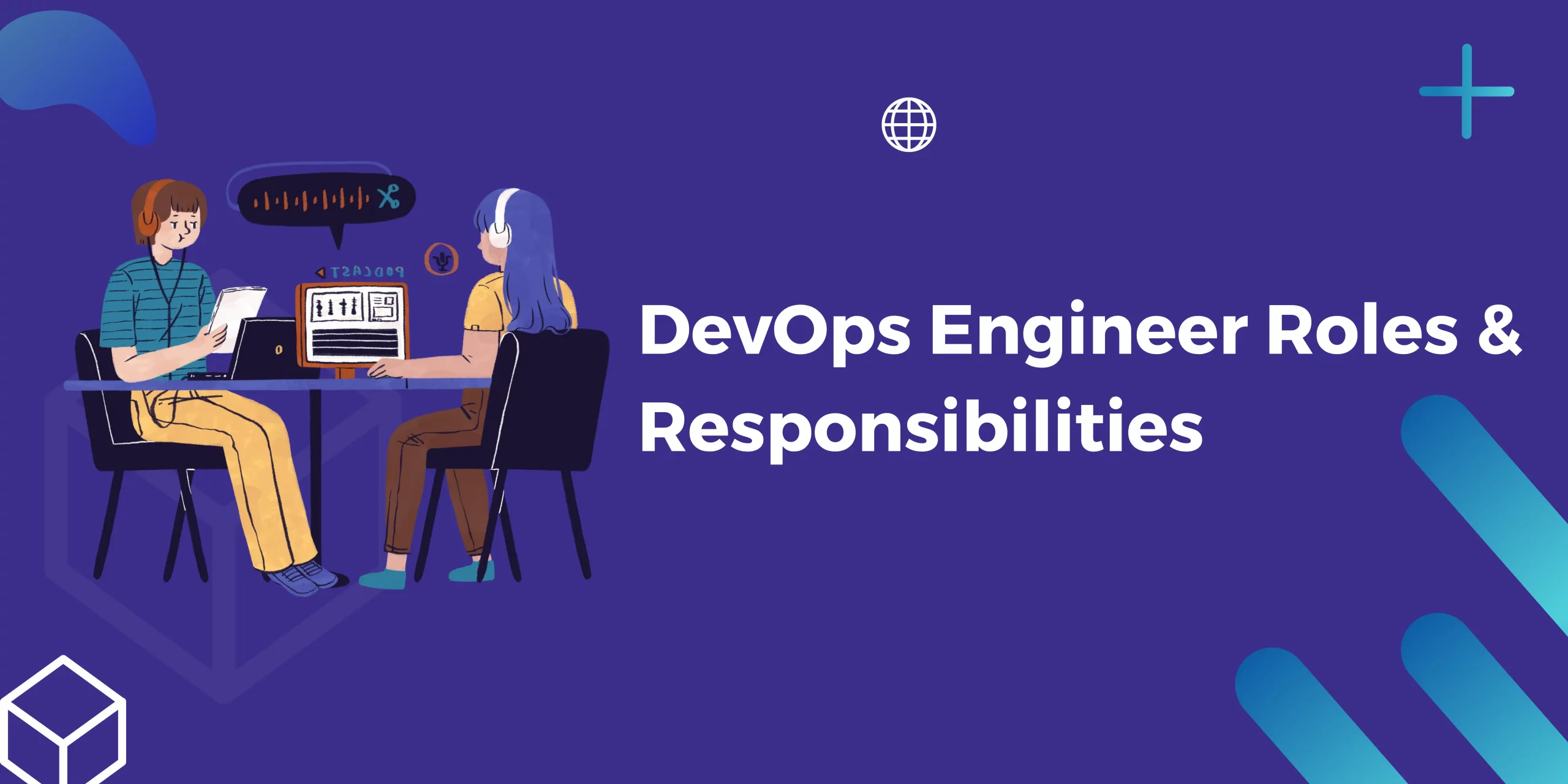
![Top High-Paying Non-Coding Jobs in DevOps [2025] 7 Non-Coding Jobs in DevOps](https://www.guvi.in/blog/wp-content/uploads/2023/11/Top-10-Non-Coding-Jobs-in-DevOps.png)



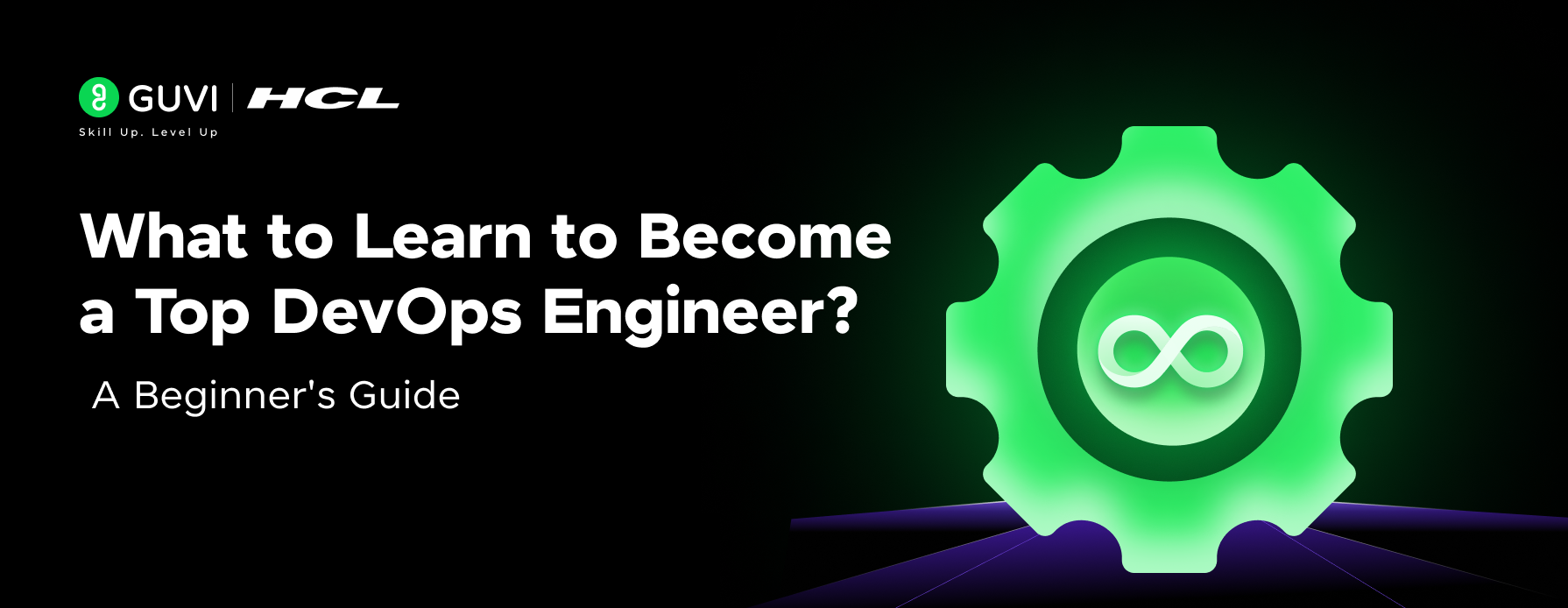

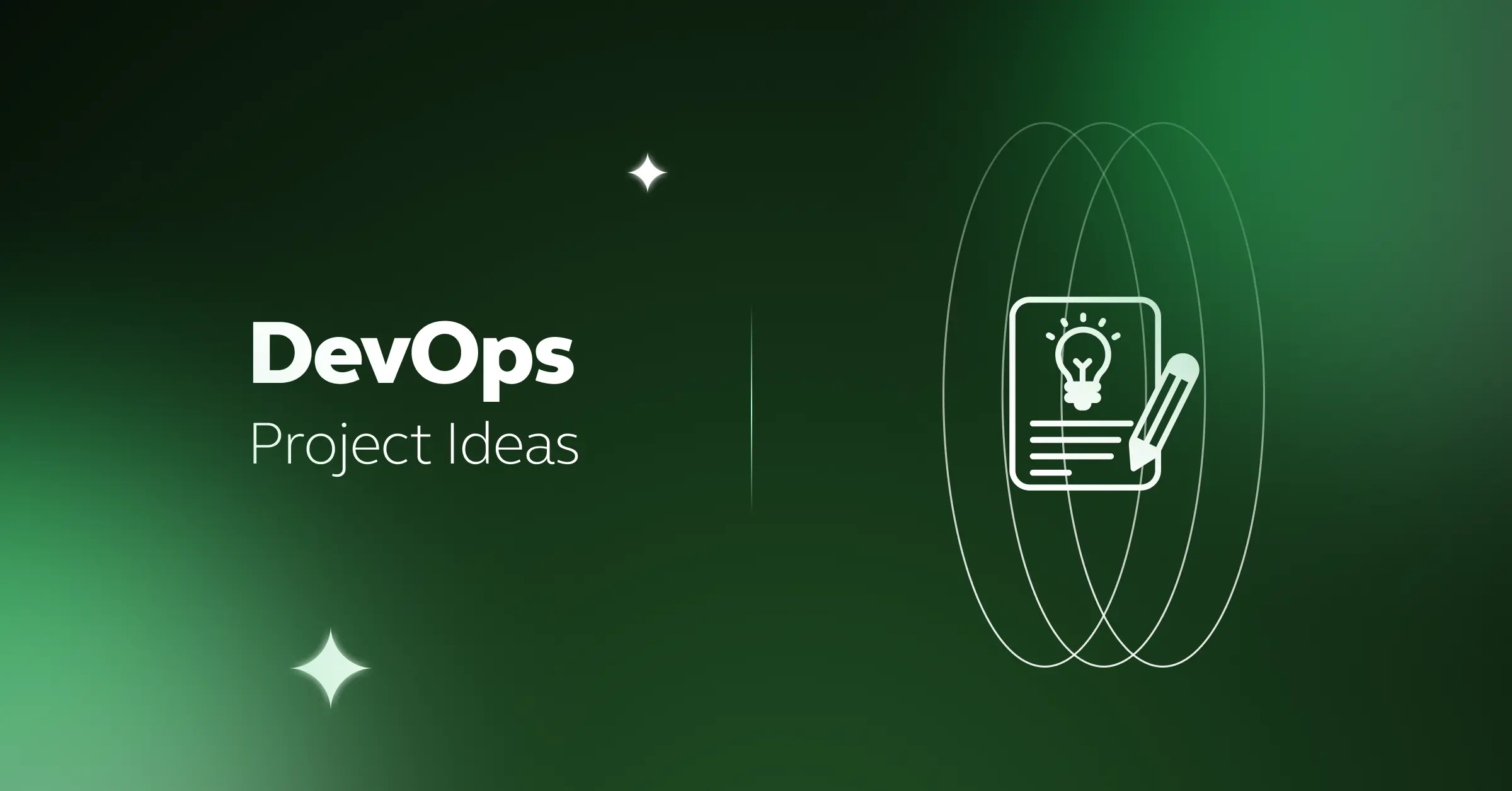
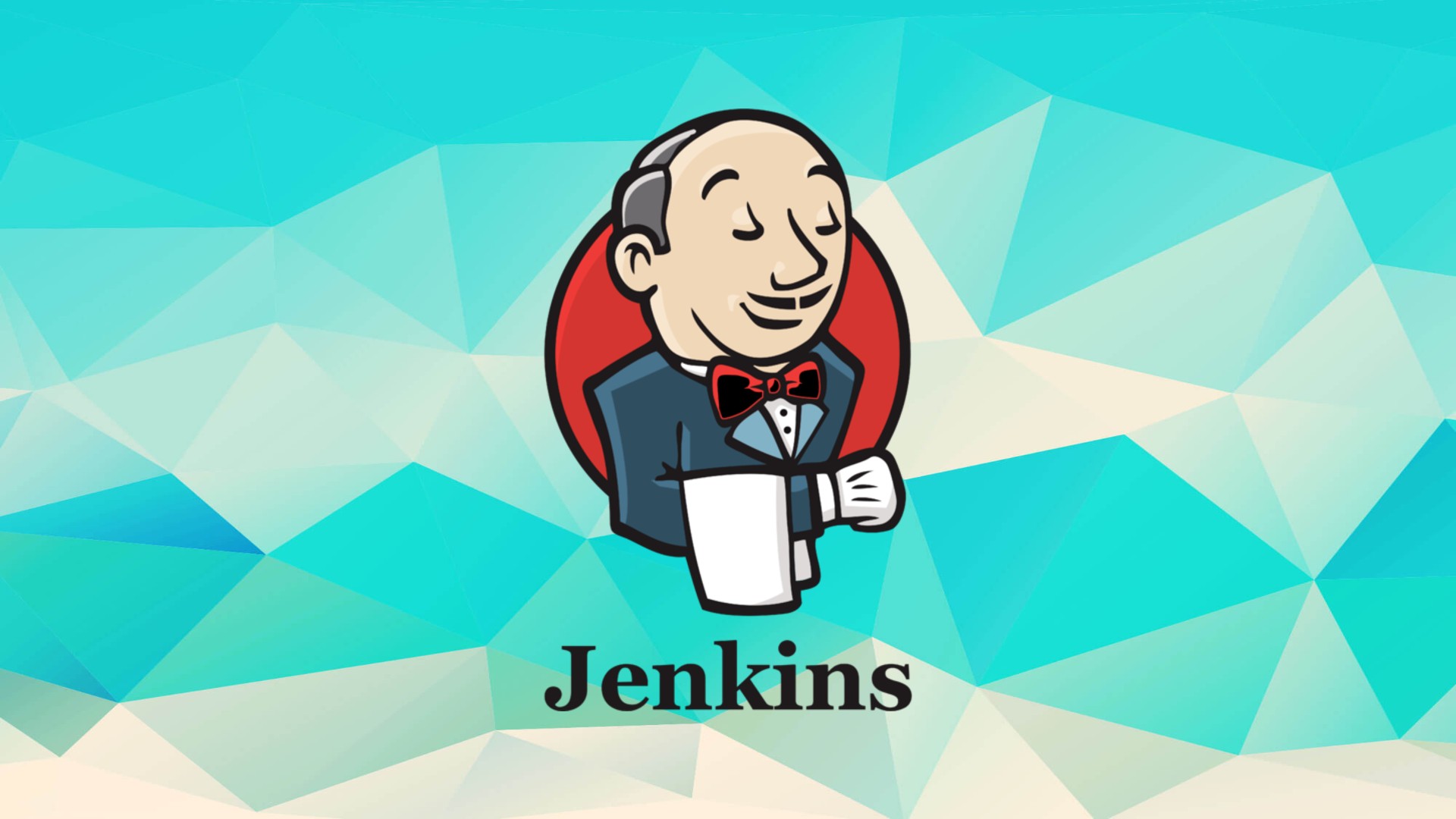

Did you enjoy this article?